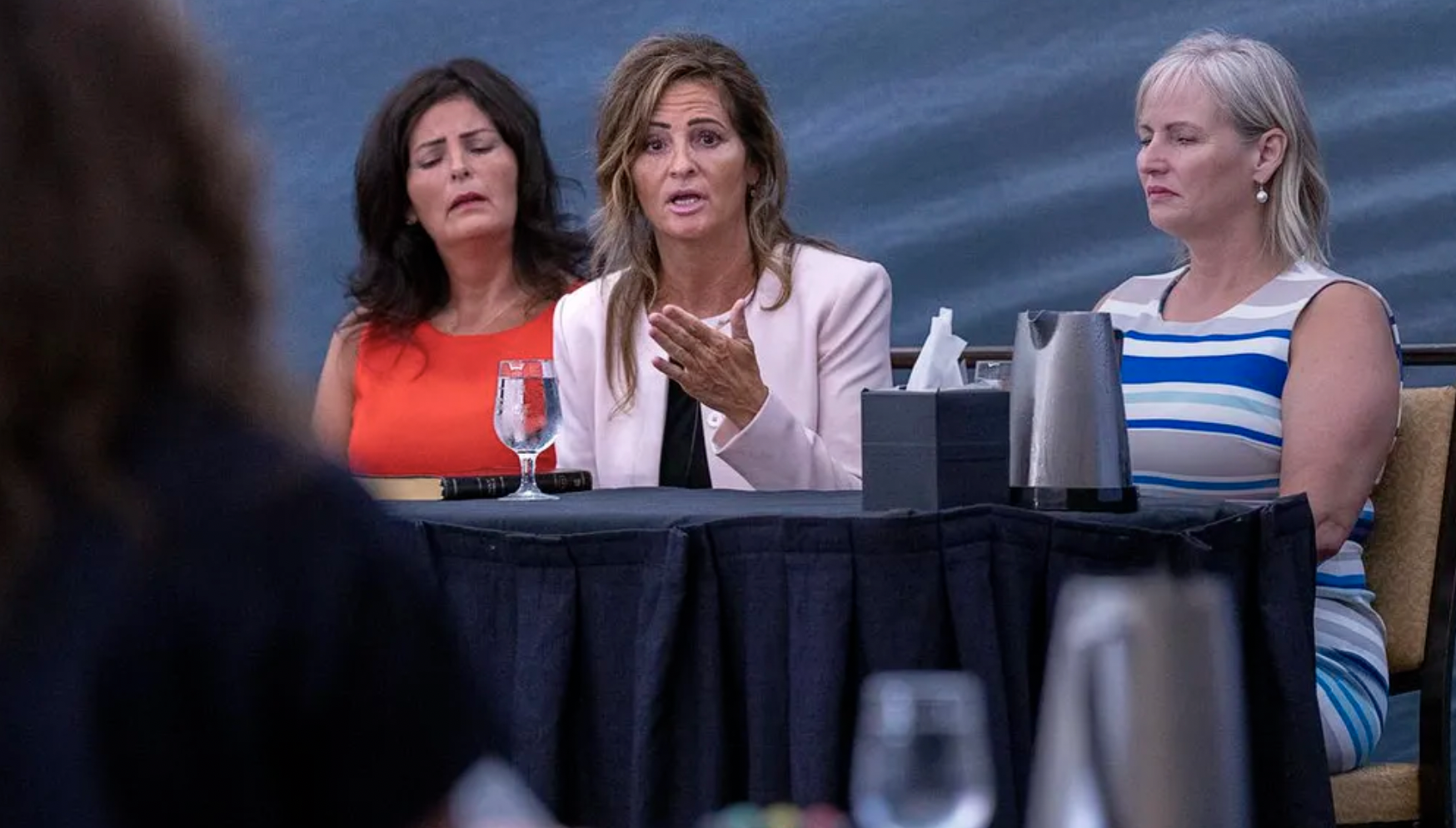
In the inquiry into the rampage in Portapique, Lisa Banfield is not — and should not be — on trial
As the commission moves on with its work, we must remember that Banfield is not an extension of her violent partner; she is a survivor of his violence. Vilifying her will not bring back the 22 people murdered that day.
Written by Farrah Khan and Sarah Boesveld.
Originally published in the Toronto Star.
The public has long struggled with which survivors of intimate partner violence to believe. Support often hinges on an expectation that they will be perfect, as if this were remotely possible. The reality is that survivors are complex, like all of us. Over time, they have become trapped in a nightmare they feel they can’t escape.
Lisa Banfield survived the night of April 18, 2020, when her common-law partner tied her up, brutally assaulted her and went on a murderous rampage in Portapique, N.S. Before that, she survived 19 years of abuse at his hands.
Twenty-two members of this community did not survive that night of violence. Neither did the murderer, who was killed by police in a bid to end his attack — and because of this, there is no criminal trial. Instead, there is the Mass Casualty Commission inquiry, a fact-finding process meant to prevent future massacres of this kind.
Banfield has been fully co-operative since the night of the murders, including providing a statement to the police from her hospital bed. When she testified before the commission on Friday, many family members of the victims walked out of the courtroom before her testimony. The commission had made the sound yet controversial decision to shield her from cross-examination, a shield also afforded to witnesses, including the RCMP.
Critics contend that, despite Banfield giving five interviews to the Commission and at least four others to the RCMP, there are holes in her testimony. How did she survive a night in the woods in her yoga pants? How did she untie herself? These fit into a narrative of suspicion that she somehow was an accomplice to her ex-partner’s plan for the mass shooting. Police have not laid charges, suggesting they do not believe Banfield knew what her abuser planned. The only charge laid against her — supplying ammunition — was stayed and will be handled through a restorative justice process.
The demand to prod her for inconsistencies is an attempt to satisfy the devastating yet understandable need to turn the commission into a criminal trial. This effort has unfortunately relied on victim-blaming tropes, which expect perfection from survivors of intimate partner violence. Banfield is not, and should not, be on trial.
Observers on social media have continuously asked, “If the abuse was so terrible, why did she stay? Why didn’t she report it to the police?” These misguided questions fail to understand the complexity of intimate partner violence, especially over a long period. Banfield testified that her ex-partner kept guns all over the home and would move them about, save for one consistent place — the gun on his bedside table.
Banfield said she was terrified for her safety and doubted she would be believed. This mirrors the experiences of those subjected to intimate partner violence across the country. Women stay for many reasons, especially if their abuser is someone like Banfield’s partner, who was wealthy and respected in the community. It has been reported that dozens of people knew about the abuse, including the police, who were called at least twice by concerned community members — with no apparent action taken.
The question should not be why Banfield stayed; it should be why we still live in a society that couldn’t make it safe for her to leave. Intimate partner violence is often seen as a private issue, the responsibility of those within the relationship. This massacre has revealed it is a raging public health and safety problem that should be treated like the epidemic it is — one that can be a warning sign of mass violence.
As the commission moves on with its work, we must remember that Banfield is not an extension of her violent partner; she is a survivor of his violence. Vilifying her will not bring back the 22 people murdered that day.
